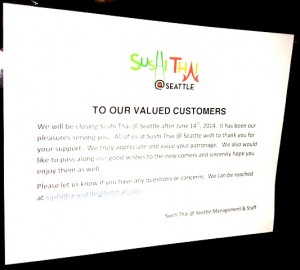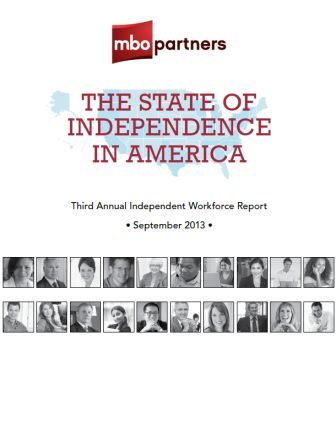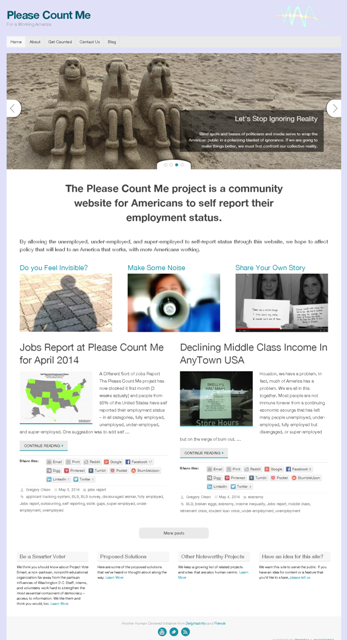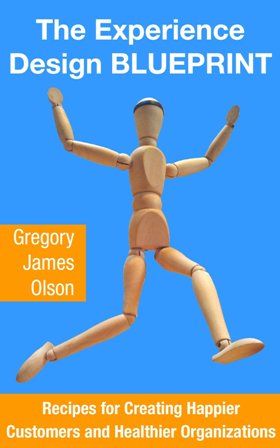 Robots Don’t Kill Jobs But CEOs Do
Robots Don’t Kill Jobs But CEOs Do
This message is especially for CEOs. Please forward to CEOs and board members if you have the courage. There is much talk of robots taking people’s jobs. It is easy to blame a machine, or another abstract like “a rapidly changing market” as Hewlett-Packard’s Whitman recently did as the company announced another cut of 25,000 to 30,000 positions.
But, to date, a robot has never walked a person to the door, not yet. And, markets don’t eliminate jobs either. I’ve yet to hear of market rain droplets falling onto workers, rendering them unemployed. No, the special words, “You’re Fired” or the equivalent actions are still reserved for humans. It is company leadership that kills jobs, not robots.
Yes, technology changes and so do markets. This has always been the case. But, let’s be really clear about what’s happening. Like stock buybacks, M&A activity and other initiatives that preoccupy the minds of board rooms and executive offices, this is about maximizing shareholder value in the short run.
 More plainly, it is about greed. The intent is to move money that would otherwise be paid to workers and redistribute instead to leadership and investors, either directly or indirectly. It is a flawed equation from the onset. History is proving this more and more, if only we would learn. Unfortunately, maximizing shareholder value and its related bad ideas are still perpetuated by business schools, investors of the short run, and the unwitting. There are simply more stakeholders to the equation that are made to be invisible, namely humans and the environment. Smart progressive leaders and companies already realize this. So do the customers that align to those values.
More plainly, it is about greed. The intent is to move money that would otherwise be paid to workers and redistribute instead to leadership and investors, either directly or indirectly. It is a flawed equation from the onset. History is proving this more and more, if only we would learn. Unfortunately, maximizing shareholder value and its related bad ideas are still perpetuated by business schools, investors of the short run, and the unwitting. There are simply more stakeholders to the equation that are made to be invisible, namely humans and the environment. Smart progressive leaders and companies already realize this. So do the customers that align to those values.
 A better world begins with the decisions made at dinner tables and carried through to the office and the board room. CEO decisions don’t live in some special vacuum. When a Hungarian camerawoman decides to trip a man carrying his child as they strive for refuge and a fresh start, the world watches. And, when a CEO chooses to trip a person or family that relied on a paycheck, also on the way to somewhere, the world watches, too. The song of cuts has been played over and over again. In the case of HP, 100,000 jobs cut in the last 10 years. In the case of Microsoft 20,000+ in recent years. For HSBC is was 50,000 jobs recently announced to be cut and Deutsche Bank yesterday announced it will cut 25% of its workforce, or 23,000 human beings. Plenty of other examples abound. It is time to change the music. It’s also time to own up to the decision and stop blaming “things”.
A better world begins with the decisions made at dinner tables and carried through to the office and the board room. CEO decisions don’t live in some special vacuum. When a Hungarian camerawoman decides to trip a man carrying his child as they strive for refuge and a fresh start, the world watches. And, when a CEO chooses to trip a person or family that relied on a paycheck, also on the way to somewhere, the world watches, too. The song of cuts has been played over and over again. In the case of HP, 100,000 jobs cut in the last 10 years. In the case of Microsoft 20,000+ in recent years. For HSBC is was 50,000 jobs recently announced to be cut and Deutsche Bank yesterday announced it will cut 25% of its workforce, or 23,000 human beings. Plenty of other examples abound. It is time to change the music. It’s also time to own up to the decision and stop blaming “things”.
We can pretend that these decisions will be in isolation and there will be no ripple effect or interactions, but that would be delusional. The effects will be long-lasting and far-reaching, inside and outside your organization. As a former CEO shared with me last week, “When there are deep cuts in the organization, it never recovers. Everybody becomes scarred. I can’t say I was unaffected.”
 Self proclaimed plutocrat Nick Hanauer warns us in his Ted talk, “Beware, fellow plutocrats, the pitchforks are coming.” In that talk he says, “We plutocrats need to get this trickle-down economics thing behind us, this idea that the better we do, the better everyone else will do. It’s not true. How could it be? I earn 1,000 times the median wage, but I do not buy 1,000 times as much stuff, do I? I actually bought two pairs of these pants, what my partner Mike calls my manager pants. I could have bought 2,000 pairs, but what would I do with them? How many haircuts can I get? How often can I go out to dinner? No matter how wealthy a few plutocrats get, we can never drive a great national economy. Only a thriving middle class can do that. ”
Self proclaimed plutocrat Nick Hanauer warns us in his Ted talk, “Beware, fellow plutocrats, the pitchforks are coming.” In that talk he says, “We plutocrats need to get this trickle-down economics thing behind us, this idea that the better we do, the better everyone else will do. It’s not true. How could it be? I earn 1,000 times the median wage, but I do not buy 1,000 times as much stuff, do I? I actually bought two pairs of these pants, what my partner Mike calls my manager pants. I could have bought 2,000 pairs, but what would I do with them? How many haircuts can I get? How often can I go out to dinner? No matter how wealthy a few plutocrats get, we can never drive a great national economy. Only a thriving middle class can do that. ”
Nick realizes that he won’t be purchasing 1000s of computers and phones and haircuts and meals to make up for those workers who will lose their jobs and have to tighten their belts.
 As fictional character in The Hobbit, Thorin Oakenshield, said, “If more of us valued food and cheer and song above hoarded gold, it would be a merrier world. But, sad or merry, I must leave it now. Farewell.” Tolkien’s worlds are make-believe, but ours are not. And, there is no my world, your world, and their world. It is all “our world”. I implore CEOs to make it a better world, not worse.
As fictional character in The Hobbit, Thorin Oakenshield, said, “If more of us valued food and cheer and song above hoarded gold, it would be a merrier world. But, sad or merry, I must leave it now. Farewell.” Tolkien’s worlds are make-believe, but ours are not. And, there is no my world, your world, and their world. It is all “our world”. I implore CEOs to make it a better world, not worse.
CEO actions need to make the companies they lead more relevant to more stakeholder and not less so. Let’s admit that the keys to the kingdom have been in the hands of the wrong people, the takers. This “taker” corporate culture has been more about taking, evading, cutting, dodging, buying back, and shifting. Boards of Directors have been complicit in this corrosive behavior. Others have watched from the sidelines cheering it on or in horror. The rabbit hole of greed is very deep. If corporate leaders continue on a destructive “taker” path, they’ll build an organization of diminishing relevance.
 Human progress is overdue. It’s time we return the keys to the makers. Let’s once again make, create, invest. Let’s celebrate progress, collaborate, innovate. Let’s inspire. Let’s be authentic. Let’s be concerned. Let’s invite newcomers to the table. Let’s keep our promises both explicit and implicit. Let’s solve problems of the world. Boards need to support CEO actions in this regard and then hold them to account.
Human progress is overdue. It’s time we return the keys to the makers. Let’s once again make, create, invest. Let’s celebrate progress, collaborate, innovate. Let’s inspire. Let’s be authentic. Let’s be concerned. Let’s invite newcomers to the table. Let’s keep our promises both explicit and implicit. Let’s solve problems of the world. Boards need to support CEO actions in this regard and then hold them to account.
In this re-frame, companies have an opportunity to become more relevant. Relevant to the older worker and the younger worker alike. Relevant to the budding innovator that has yet to graduate. Relevant to the communities and the stores and channels and vendors that work in those communities.
If you are the CEO, ask yourself why should your employees, customers, partners, or other stakeholders be emotionally invested in the business when you are not.
 There are plenty of people who can help you re-frame your business, redefine your products and services and build relevance for what’s next. Look for customer experience consultants, service design expertise, innovation consultants or as I prescribe in Ch 14 of my book, create an innovation neighborhood and stock it in part with outside entrepreneurs. Use technology to complement humans not replace them.
There are plenty of people who can help you re-frame your business, redefine your products and services and build relevance for what’s next. Look for customer experience consultants, service design expertise, innovation consultants or as I prescribe in Ch 14 of my book, create an innovation neighborhood and stock it in part with outside entrepreneurs. Use technology to complement humans not replace them.
Jobs will be eliminated for reasons, some good and some bad. I realize this. But, if you are the human behind the decision to destroy jobs, then you must confront reality. You’ll eventually have to. Because the humans you eliminate will likely build robots and organize a silent revolution that will one day displace you, too.
about the author
Gregory Olson is the author of The Experience Design Blueprint, a book about designing better experiences and then making them come true. As discussed in Chapter 14, the world of work has changed and it’s not coming back as we knew it. The book is available in full-color print or on Kindle.
His latest book is L’ impossi preneurs: A Hopeful Journey Through Tomorrow, a light-hearted and deadly serious book about a brighter future where we all live more meaningful lives, governments invest in people and sustainable progress, and technology serves humans. Chapters in L’ impossi preneurs that relate to this article include Chapter 1: Flavors of Entrepreneurship, Chapter 5: Wealth & Economy and Ch 12: World of Work.
Some of the “impossible” ideas of Chapter 5 include Universal Unconditional Basic Income, an Innovation Clearinghouse, Participatory Budgeting, The Make Meaning Department, Empathy Builder, Building a Truth Sculpture, a Safety Net for Entrepreneurs, Household Prosperity Index, and revisiting the Corporation.
 Gregory Olson founded strategy and design firm Delightability, LLC. with the belief that if you delight customers then success will follow. He believes that we all have the potential to do better, as individuals, organizations, and communities, but sometimes we need a little help. Gregory also serves as a volunteer board member for Oikocredit Northwest, a support association for social investor and financial institution, Oikocredit International.
Gregory Olson founded strategy and design firm Delightability, LLC. with the belief that if you delight customers then success will follow. He believes that we all have the potential to do better, as individuals, organizations, and communities, but sometimes we need a little help. Gregory also serves as a volunteer board member for Oikocredit Northwest, a support association for social investor and financial institution, Oikocredit International.


 The World of Work Has Changed
The World of Work Has Changed



